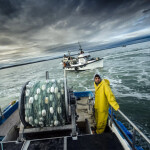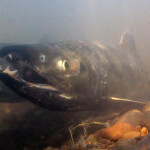The Scottish Salmon Company (SSC) achieved record revenues of GBP 150.9 million (USD 215.7 million, EUR 174.9 million) in 2017, an increase of GBP 41 million (USD 58.6 million, EUR 47.5 million) on its previous best, set in 2016.
At the same time, the producer’s operational earnings before interest and taxes (EBIT) reached almost GBP 30.8 million (USD 44 million, EUR 35.7 million), up from GBP 11.9 million (USD 17 million, EUR 13.8 million), while its harvest increased by just 930 metric tons (MT) to 25,272 MT as it continued to “work hard to address the biological situation being experienced industry wide.”
A harvest of around 26,500 MT is anticipated for 2018.
In SSC’s annual report, Chairman Robert Brown, said that while aquaculture was inherently a volatile business, the net direction last year had been “dramatically positive.”
“The hard work of our employees overcame continuing biological challenges to take full advantage of high prices in satisfying our customers’ demand,” he said.
Brown also stressed the importance of provenance to the company’s export strategy.
“Global consumers are increasingly focused on provenance, sustainability and traceability. We continue to capitalize on these trends, building on the success of our flagship premium products and highlighting Scottish provenance as a key differentiator," he said. "We now export over half of [our] production to key markets across the globe from North America to the Far East.”
Through its local sourcing policy, SSC spent GBP 98 million (USD 140.1 million, EUR 113.6 million) with 135 Scottish suppliers, accounting for a quarter of the salmon industry’s total spend of GBP 390 million (USD 557.4 million, EUR 451.9 million) in the Scottish supply chain.
SSC CEO Craig Anderson said that addressing biological challenges continues to be a priority for the business, and that it has taken a collaborative approach with industry partners to proactively develop sustainable and scalable solutions.
A new hydrolicer has had a substantial impact and it has extended its cleaner fish program, while freshwater treatments have been trialed to good effect. Additionally, a targeted feed regime has improved fish health, he said.
“Our strategic priorities are clear across the business: sustainable growth, infrastructure and operational efficiency, innovative and effective-bio initiatives and compelling marketing activity," Anderson said. "A keen focus on enhanced fish health planning and investment has also improved our biosecurity."






